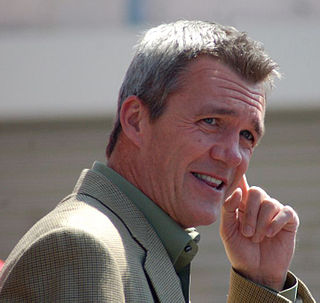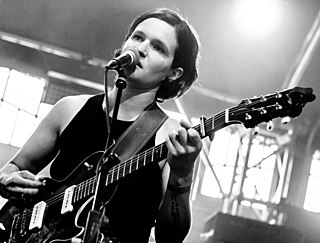A Quote by Martin Short
I think that even though the characters were heightened, the 'SCTV' cast were all such strong actors they found a certain truth in playing them. I think that's why the show stays fresh and timeless.
Related Quotes
I've always liked shows that have a strong cast of secondary characters. One of the greatest examples ever I would say is 'The Simpsons.' If you think about it, you could name 100 characters recognizable from that show. I think 'Scrubs' has done a good job of having a strong team coming off the bench.
This is a world that is much more uncertain than the past. In the past we were certain, we were certain it was us versus the Russians in the past. We were certain, and therefore we had huge nuclear arsenals aimed at each other to keep the peace. That's what we were certain of... You see, even though it's an uncertain world, we're certain of some things. We're certain that even though the "evil empire" may have passed, evil still remains.
For a while, I was feeling like I was always playing characters that weren't specifically Korean or specifically Asian, even - that they were characters who were originally written white, and then they would cast me. And I used to consider that a badge of honor because that meant I had avoided stereotypes.
There were a lot of lessons of production to be learned. On the page, the biggest thing you learn on any TV show is how to write to your cast. You write the show at the beginning with certain voices in your head and you have a way that you think the characters will be, and then you have an actor go out there, and you start watching dailies and episodes. Then, you start realizing what they can do and what they can't do, what they're good at and what they're not so good at, how they say things and what fits in their mouth, and you start tailoring the voice of the show to your cast.
I think the success of every novel - if it's a novel of action - depends on the high spots. The thing to do is to say to yourself, 'Which are my big scenes?' and then get every drop of juice out of them. The principle I always go on in writing a novel is to think of the characters in terms of actors in a play. I say to myself, if a big name were playing this part, and if he found that after a strong first act he had practically nothing to do in the second act, he would walk out. Now, then, can I twist the story so as to give him plenty to do all the way through?
We were kind of never one of CBS favorites [with Threshold], even though we'd gotten really good reviews for the pilot. We were on at, what was it, 10 o'clock on a Friday night? That's kind of where you bury a show if you don't want it to last. But, wow, what a cast, huh? You could never get that cast together again.
Normally, filmmakers would just write a script and cast people to act as certain characters in the story. But in my way of doing things, I have the actors in my mind already, so I'm trying to borrow something that's unique to them. The characters have a very natural connection to the actors themselves.
In the final exam in the Chaucer course we were asked why he used certain verbal devices, certain adjectives, why he had certain characters behave in certain ways. And I wrote, 'I don't think Chaucer had any idea why he did any of these things. That isn't the way people write.' I believe this as strongly now as I did then. Most of what is best in writing isn't done deliberately.
We had a moment in the '40s and '50s, where female characters were very strong in film, where these incredible roles were written for women like Joan Crawford, like Bette Davis. But then there was a space of time where - I don't know why - it wasn't like that. It became difficult for women to find certain roles after a certain age.



































